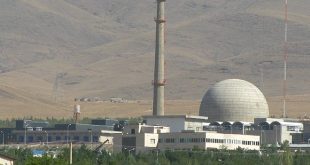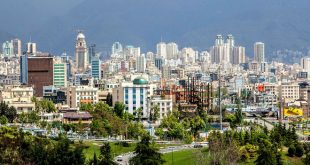 As the Ebola infection rate and death toll continue to rise rapidly on the African continent, many of us have become complacent with the measures we have taken to protect Americans from this deadly disease.
As the Ebola infection rate and death toll continue to rise rapidly on the African continent, many of us have become complacent with the measures we have taken to protect Americans from this deadly disease.
Other nations, such as England, have gone so far as to ban flights emanating from the affected regions of Africa. The Centers for Disease Control and various infectious-disease specialists have done a yeoman’s job in their efforts to prevent infected individuals in our country from contaminating others. They have put excellent protocols in place that would virtually guarantee complete safety. Unfortunately, all of those valiant efforts cannot preclude human error, which remains an ever-present danger, regardless of intellect.
For this reason, I and many others are not comfortable with the idea of bringing infected individuals into our midst when we can readily treat them elsewhere and happily receive them back once the infectious danger has passed.
When one does a logical benefit-to-risk analysis, it is clear that the worst things that could happen by intentionally bringing this dangerous disease to America are far worse than the best things that could happen. Some say if we bring infected individuals here, it will accelerate research endeavors and a potential cure or effective vaccination. Others say not bringing infected citizens back demonstrates an insensitivity toward wonderful people who risk their lives for others. I am sympathetic to these arguments, and if we did not have safer alternatives, they would convince me.
Perhaps we should be concentrating on stopping the spread of Ebola in Africa and eradicating it from Earth. Like the war on terrorism, we should fight it elsewhere to decrease the likelihood of needing to fight it here.
African lives are every bit as valuable as lives in America or anywhere else, and this humanitarian crisis has enormous health implications for the whole world. If, as some officials say, bringing infected individuals back here expedites the acquisition of knowledge that could lead to a cure, as all components of the disease could be more carefully studied, why not transport more researchers and facilities to the heart of the epidemic and dramatically accelerate the process?
I have no desire to induce panic, but we must realize that some viruses are known to undergo mutations that make them even more virulent. If the Ebola virus becomes even more pathologic, the ensuing panic and destruction of human life could go far beyond what is currently being acknowledged. This means there is some urgency to getting the outbreak in Africa under control.
The point is, this is an extremely dangerous disease with the potential to spread throughout several African countries and, subsequently, into other parts of the world, including the United States. Most crises prompt warnings, which, if heeded and acted upon, can avert disaster. On the other hand, if arrogance and mistakes characterize the response, horrendous results are likely to ensue.
If we stop trying to prove we are right — whatever our opinions are — and instead concentrate our efforts on halting the spread of the disease where it is concentrated and finding a cure, perhaps we could avert needless panic and death throughout Africa, America and the world.
COPYRIGHT 2014 THE WASHINGTON TIMES
Photo credit: Wikimedia Commons
 Dr. Ben S. Carson is professor emeritus of neurosurgery at Johns Hopkins University and author of the new book, One Nation: What We Can All Do to Save America’s Future.
Dr. Ben S. Carson is professor emeritus of neurosurgery at Johns Hopkins University and author of the new book, One Nation: What We Can All Do to Save America’s Future.
 Black Community News News and Commentary for Christians
Black Community News News and Commentary for Christians



